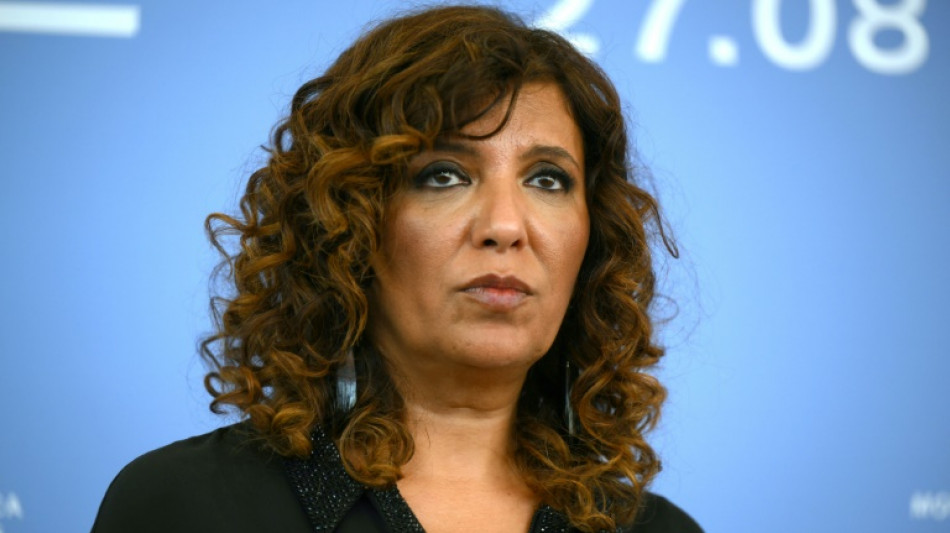
BCC
-1.8100

Kaouther Ben Hania, whose movie about Gaza was the talk of the Venice Film Festival on Wednesday, is a Franco-Tunisian director who blurs the boundaries of reality with her hard-hitting works.
One of a new generation of filmmakers from Tunisia bringing social and political issues to the screen, the 48-year-old was the first director to represent the north African country at the Oscars in 2021.
For her latest film, "The Voice of Hind Rajab", the actual distress calls made by a Palestinian five-year-old in Gaza to Red Crescent emergency workers serve as the film's raw material.
Hind Rajab Hamada was fleeing the Israeli military in Gaza City with six relatives in February 2024 when their car came under fire.
As the sole survivor -- hiding under the bloodied bodies of her dead family -- she called for help, but she and two ambulance staff who went to rescue her were eventually found killed.
"When I heard the first time the voice of Hind Rajab, there was something more than her voice. It was the very voice of Gaza asking for help and nobody could enter," the director told reporters on Wednesday.
The film received a standing ovation at its Venice premiere that lasted 23 minutes and has been tipped by some to win the festival's top award on Saturday.
Her previous prizes include a best documentary award at the French Cesar awards in February 2024 for "Four Daughters" about the radicalisation of two young Tunisian women in which the director interviewed family members and had scenes re-enacted by actresses.
She took the film industry to task over Gaza when accepting the prize.
"Today, saying ‘Stop killing children’ is becoming a radical demand," she said from the stage.
Unafraid of tackling controversial subjects, her "The Beauty and the Dogs", which showed at Cannes in 2017, follows a woman who struggles throughout the night to file a complaint after being raped by police officers.
- New generation -
Born in 1977 in central Tunisia's Sidi Bouzid -- a city without a movie theatre -- the director belongs to what she calls the "VHS generation" who "grew up with Indian Bollywood films" on video tape.
After arriving in the capital Tunis to study business, she changed course after discovering film and moved to Paris.
In 2010, Ben Hania made the documentary "Les Imams Vont à l'Ecole" ("Imams Go to School") about the training of future imams at the Grand Mosque of Paris.
Four years later, she made the satirical mock-umentary "Le Challat de Tunis" about a slasher targeting women's buttocks.
In 2016's "Zaineb Hates the Snow", Ben Hania offered up a sensitive chronicle of a Tunisian girl's adjustment growing up in a new country, Canada.
The ouster in 2011 of Tunisia's longtime ruler Zine El Abidine Ben Ali in the wake of the Arab Spring uprisings changed her film-making.
"Under the dictatorship, I would never have been able to make the films I make today, which are supported by Tunisia," she told AFP in 2020.
She was the first to represent Tunisia at the Oscars in 2021, with "The Man Who Sold His Skin", which follows a desperate Syrian man who agrees in a Faustian bargain to have his back tattooed by a famous artist in exchange for refuge in Europe.
Tunisia has shortlisted "The Voice of Hind Rajab" for the 2026 Oscars.
Y.Blaha--TPP